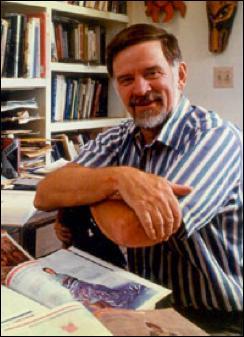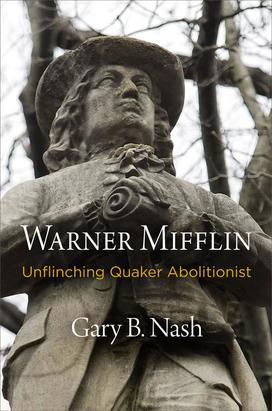History’s Forgotten Abolitionist Gets a Long-Awaited Recognition

After the war, Mifflin became the tireless state and national legislative lobbyist, championing abolition, drawing much ire and detestation from many Southerners, in particular. In Warner Mifflin: Unflinching Quaker Abolitionist (University of Pennsylvania Press) Gary B. Nash ’55 *64 brings Mifflin back to public memory, demonstrating why he belongs to the pantheon of Quaker abolitionists like William Southeby, Benjamin Lay, John Woolman, and Anthony Benezet.

Opening lines: At a time when questions about race, equality, and social justice flood the media, it is fitting to bring out of the shadows one of the most unflinching friends of black Americans who strode through the boisterous Revolutionary era. In a notice of his death, at the end of the eighteenth century, the new nation’s foremost newspaper wrote that “The number, difficulties, and success of his labours in the cause of the enslaved Africans in the United States would furnish materials for a volume.” But such a volume has never been written, more than two centuries after the death of a man named Warner Mifflin. Today, his name is known to hardly anyone.
That was not true in the time of Franklin, Washington, Hamilton, Adams, Jefferson, and Madison. All these celebrated founders knew Warner Mifflin well, and some did not like what they saw in the man. Some of the luminaries of the European Enlightenment — especially St. John de Crevecoeur, Jacques-Pierre Brissot de Warville, and Thomas Clarkson — communed with Mifflin, and they very much liked what he said, what he did, and what he stood for. There was no such thing as a mid-Atlantic Quaker who couldn’t recognize the man, not just for his unusual height, little short of seven feet, but for his moral intensity that was exceeded only by his haunting fear that he would displease God with inadequate efforts on behalf of black Americans. He was, in fact, the key bridge figure in the early abolitionist movement, connecting the first wave of antislavery spokesmen in the decades leading up to the American Revolution with another wave of emancipationists awakened in the third decade of the nineteenth century. Operating between these two cohorts was a small but determined band of abolitionists whom historians only recently have begun to disinter from history’s graveyard. Among them, Mifflin was the most energetic, the most uncompromising, and the most reviled.
Reviews: "Warner Mifflin … brings the Quaker abolitionist from the historical shadows and into the blazing light of his moral courage and singular efforts to right the terrible wrongs of American slavery and racism. The story may be an old one, but Mifflin's is as important for our own times as it is for our understanding of the Revolutionary era."—Thomas P. Slaughter, author of The Beautiful Soul of John Woolman, Apostle of Abolition











No responses yet